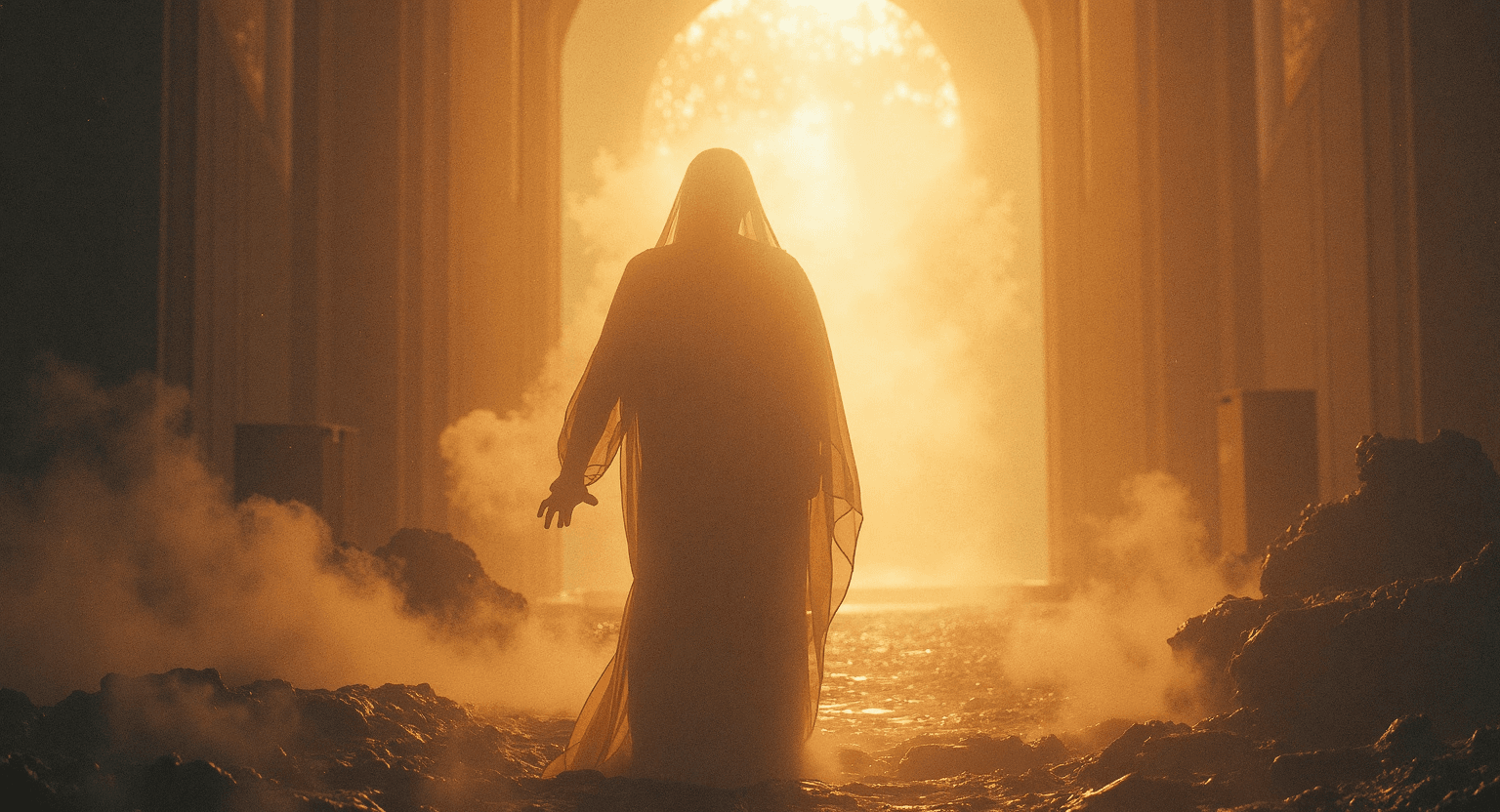“For it is a knell that summons thee to heaven or to hell.” These haunting words, spoken by Macbeth moments before Duncan’s murder, capture the pivotal moment when contemplation transforms into irrevocable action. The line represents one of Shakespeare’s most profound explorations of fate, choice, and moral consequence.
The word “knell” carries tremendous weight in this line. A knell is specifically the sound of a bell tolling for the dead, making this more than just a simple bell’s ring. Shakespeare’s choice of this particular word immediately evokes death, ceremony, and finality. The knell marks not just the end of Duncan’s life but also the death of Macbeth’s honor and innocence.
In medieval and Renaissance times, church bells played a crucial role in community life, marking significant moments and transitions. The knell specifically represented the passage from life to death, making Shakespeare’s use of this imagery particularly powerful for his contemporary audience. Every viewer would have understood the solemn finality this sound represented.
The line’s structure presents a stark dichotomy between heaven and hell, yet the word “summons” suggests inevitability. Macbeth recognizes that his next action will determine his eternal fate, yet the summoning itself cannot be avoided. This creates a moment of terrible clarity where free will meets predetermined consequence.
Shakespeare’s use of “thee” rather than “me” in this soliloquy creates a fascinating psychological distance. Macbeth appears to be addressing himself in the second person, as if trying to separate himself from the gravity of his imminent actions. This psychological splitting foreshadows his later dissociation from his deeds.
The religious imagery in this line reveals the deep Christian context of Macbeth’s moral struggle. The explicit mention of heaven and hell demonstrates his clear understanding of the spiritual consequences of his planned actions. This is not merely a political assassination but an act with eternal ramifications.
The word “summons” carries legal as well as religious connotations. Like a summons to court, this call cannot be ignored. Macbeth recognizes that his actions will demand judgment, whether divine or infernal. The formal nature of a summons adds weight to the moment’s significance.
Time plays a crucial role in this line’s impact. The knell marks a specific moment when everything changes. Before this sound, Macbeth still has choice; after it, he steps irrevocably onto his tragic path. The line captures that razor’s edge between deliberation and action.
The alliteration in “summons” and “thee” creates a hissing sound that adds to the line’s ominous quality. Shakespeare’s careful attention to the sound of his language reinforces the emotional impact of this crucial moment. The line’s rhythm itself suggests the measured tolling of a bell.
The placement of this line within the larger soliloquy reveals Macbeth’s acute awareness of the moral magnitude of his planned action. Unlike Lady Macbeth, who tries to dismiss moral consequences, Macbeth fully understands the spiritual implications of regicide. This awareness makes his decision to proceed even more tragic.
Modern productions often emphasize this moment with sound design, actually incorporating the toll of a distant bell. However, the line’s power lies in its ability to create this sound in the audience’s imagination through words alone. Shakespeare’s language makes the knell real without any physical sound effect.
The line’s theological implications extend beyond simple Christian doctrine. The idea that a single action can determine eternal fate raises profound questions about justice, free will, and redemption. Macbeth’s recognition of this moment’s significance demonstrates his tragic self-awareness.
The metaphysical aspect of the knell suggests a connection between earthly actions and cosmic consequences. The bell bridges the physical and spiritual realms, making concrete the abstract concept of moral choice. This connection between mundane and divine runs throughout the play.
For actors portraying Macbeth, this line presents a crucial moment requiring careful interpretation. It must convey both the character’s understanding of consequence and his willingness to proceed despite this knowledge. The line reveals Macbeth’s tragic combination of awareness and unstoppable ambition.
The image of the knell serves as a powerful memento mori – a reminder of death’s inevitability. However, here it precedes rather than follows death, making it a prophecy as well as a reminder. This dual nature adds to the line’s dramatic and philosophical weight.
Shakespeare’s genius shows in how this line works simultaneously on multiple levels: as dramatic dialogue, as character revelation, as philosophical meditation, and as poetic imagery. Each aspect reinforces the others, creating a moment of remarkable dramatic power.
The universal nature of this moment transcends its specific context. Everyone faces decisions that feel momentous, choices that seem to determine our fate. Macbeth’s recognition of this moment’s significance speaks to all who have stood on the brink of irreversible action.
The line resonates particularly with modern existentialist thought, suggesting that we create our eternal fate through our choices. Macbeth’s awareness that this moment will determine whether he goes to heaven or hell reflects the existentialist emphasis on the supreme importance of individual choice.
Beyond its immediate dramatic context, this line serves as a powerful meditation on the nature of choice and consequence. It captures the moment when understanding meets action, when knowledge confronts will. This intersection of awareness and choice lies at the heart of tragic drama.
The fateful knell echoes throughout the rest of the play, as Macbeth’s choices lead him deeper into violence and paranoia. This single line foreshadows his entire tragic trajectory, making it a crucial moment in understanding the play’s broader themes.
This line’s enduring power lies in its ability to capture a universal human experience – the moment of terrible clarity before an irrevocable action. Through Macbeth’s words, Shakespeare illuminates the weight of human choice and the inescapable nature of its consequences.
